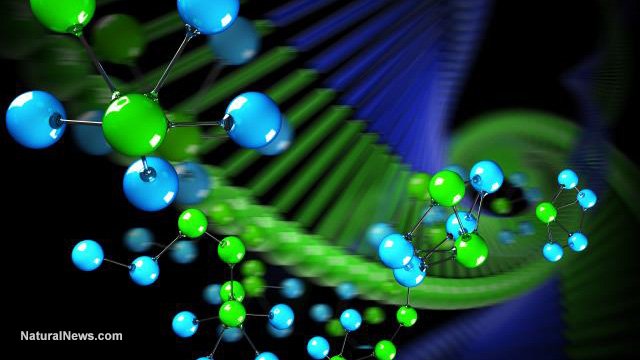
(NaturalNews) If you are eating genetically modified foods – including essentially any product containing corn or soy that has not been certified organic or free from genetically modified organisms (GMOs) – the modified genes in those GMOs might be negatively influencing your body's own DNA.
The American Academy of Environmental Medicine has warned that studies have linked consumption of GMOs with health problems, including reproductive dysfunction (including infertility), organ damage, immune dysfunction, insulin disorders and accelerated aging. The mechanisms by which such harms occur remain unclear, but at least some of them might come from changes that GMOs cause to the DNA of organisms other than those deliberately "modified" by genetic engineers.
GMO DNA passes into your blood
The biggest question is this: Does eating GMOs modify your DNA? The short answer is: Possibly. No one really knows.
GMOs are produced through horizontal gene transfer, which involves splicing genes from an external source (either another organism, or a synthetic gene engineered in a lab) into the genome of a living creature. This process is so new that it remains unclear if this horizontally transferred DNA might behave in ways different from traditional, "vertically transferred" DNA (that is, inherited from one's ancestors).
Some bacteria have been shown to horizontally transfer DNA between species; it is unclear if this can occur among more complex organisms, as well. If so, there could be biological pathways in place allowing engineered DNA from GMOs to move into the human genome.
This concern remains mostly theoretical, but at least one study showed that DNA from GMOs can indeed leave your food and enter your bloodstream. Could it be taken up from there by some of your cells and incorporated into your genome?
A 2014 paper in PLOS One analyzed the results of four prior independent studies on more than 1,000 human participants who had eaten GMO foods, including derivatives such as high-fructose corn syrup, soy protein, or meat from animals fed GMOs. The researchers found that DNA fragments derived from GMO plants were indeed found in the bloodstream, rather than being broken down as GMO companies claim.
"In one of the blood samples the relative concentration of plant DNA is higher than the human DNA," the researchers wrote.
The DNA found was "cell-free DNA," which floats outside of cells and is not known to play any physiological role. Thus, the study does not prove that the human genome is being modified by GMOs – but it does refute a main claim of GMO proponents, and raises some important concerns.
GMOs hijack beneficial bacteria
In at least one area, however, a diet containing GMOs has been shown to lead to genetic changes: in the beneficial bacteria that inhabit the human gut. These roughly 100 trillion organisms – collectively known as the microbiome – play important and complex roles in regulating everything from metabolism to immune function to mood and cognition. Microbiome dysfunction has even been linked with autism.
Studies have shown that DNA from GMO foods can pass into human gut bacteria. For example, gut bacteria have been shown to incorporate the insecticide-producing Bt gene found in many GMO foods, thereby producing pesticides within the human body.
Small changes to the microbiome can produce big changes. A 2015 study found that emulsifiers (common food additives) caused changes to the gut microbiome that caused inflammation associated with inflammatory bowel disease (IBD) and metabolic syndrome.
Prior research has shown that people with IBD and metabolic syndrome both have different makeups to their microbiomes than people without those diseases. Notably, both diseases have increased dramatically in prevalence since the mid-20th century, suggesting environmental causes.
Hi! I am a robot. I just upvoted you! I found similar content that readers might be interested in:
http://wariscrime.com/new/dna-altered-gmos/
another good job done by you......